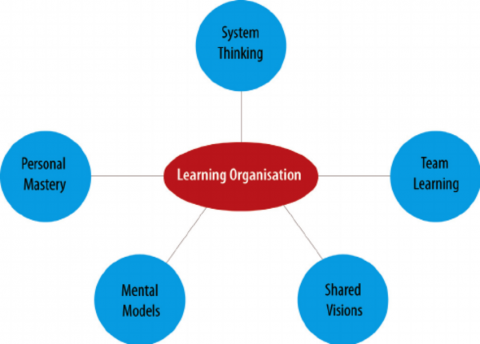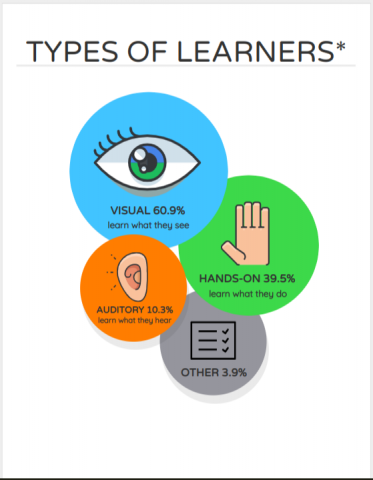+1(209) 348-9544
order@myessayservices.com
+1(209) 348-9544
order@myessayservices.com
![]() Are you in High School, College, Masters, Bachelors or Ph.D and need someone to help in your homework? All you need is to ask for research paper help written by a specialist in your academic field. When you buy an essay online from My Essay Services, we offer you an original, nil plagiarized and unique paper written by a dedicated writer who is PhD or Masters qualified. MyEssayServices.com is an experienced service with over 9 years experience having delivered over 83,000 essays over the years.
Are you in High School, College, Masters, Bachelors or Ph.D and need someone to help in your homework? All you need is to ask for research paper help written by a specialist in your academic field. When you buy an essay online from My Essay Services, we offer you an original, nil plagiarized and unique paper written by a dedicated writer who is PhD or Masters qualified. MyEssayServices.com is an experienced service with over 9 years experience having delivered over 83,000 essays over the years.

 For Senge, the organizational learning is dependent on the teamwork. Being able to implement the organizational learning calls for in-depth understanding of change causing elements. Organizations implement change in forms of teams whereby change is implemented in one or more of the organizational departments. When individuals and team learn, the organizational development is realized.
For Senge, the organizational learning is dependent on the teamwork. Being able to implement the organizational learning calls for in-depth understanding of change causing elements. Organizations implement change in forms of teams whereby change is implemented in one or more of the organizational departments. When individuals and team learn, the organizational development is realized.
Senge came up with five disciplines on organizational learning. The disciplines are the main influence's of the development and uptake of organizational learning. He proposes that all the people are learners (Denton, 1998). He refutes the illusion that the world is comprised of different and unrelated forces. He proposes that all forces in the organizational setting are interrelated, and they contribute to the development of the eventual outcome.
From the assertions made by Senge, organizations are not involved in the intermittent process of development. On the contrary, all organizations are involved in one form of learning or the other. Therefore, an organization and its outcomes are dependent on how well it has aligned itself with learning and how conducive the environment is for learning. The capacity of the organization to attain the desired outcomes is continually improved through the process of organizational learning.
In organizational learning, new and expansive ways of thinking are continuously nurtured in a bid to develop the desired output from the organizational operations. The environment must be conducive to the individual learning for there to be any form of organizational learning. The climate ought to be designed in a way that it will increase the level of collaboration in the learning activities such that the organization will be capable of developing the potential of the individuals and the teams to attain the set goals (Denton, 1998).
Continuous improvement in terms of organizational learning proposes that the management ought to come up with approaches of noting and reducing the levels of learning disabilities (Geppert, 2000). Senge proposes that there are seven learning disabilities. Most of the disabilities are tied directly to the organization’s culture and the climate. The seven learning disabilities can only be cured using the five disciplines proposed by Senge in his model of organizational learning.
The five disciplines ought to be applied in the organizational learning process in a bid to improve the learning capacity of all the players in the organizational setting. The continual application of the disciplines is a requirement for the management in the development of the desired outcomes in the organizational learning (Kloot, 1999). Therefore, learning is not an intermittent process whereby the desired outcome is attained instantaneously.
The first discipline involves the development of a system approach and thinking, system thinking is different from the traditional approach to thinking since in the system thinking every aspect of the organization is a direct contributor to the performance levels attained by the organization (Denton, 1998). System thinking looks at the inter-linkages in the organization as opposed to the individual isolated approach. System thinking focuses on the input of each member or department to the organizational performance as opposed to the individualistic performance. Instead of looking at the processes, learning ought to enhance the strength of organizational interrelationships (Geppert, 2000).
The second discipline espouses that the approach towards work ought to be similar to that of artists to the work of art. Therefore, there is the need for the organization to focus on the development of the cavity of the individual employees in order for it to learn. The connection and inspiration that pervades the mind of an artist ought to be the main informing aspect of the organizational learning. The people perfect their roles in the organization, the higher the level of organizational learning attained over the time.
 The third principles are the mental modes, which posit that every participant in the organization has ingrained images that inform his or her actions in relation to performance. The ability of the members of an organization to envision the desired level of performance determines the ability to learn (Denton, 1998). The workers and departments ought to envision their direction and come up with the means of attaining the said vision. This assumption proposes that the organizational learning is dependent on the creation of the desired location or direction in which it should be headed and active pursuit of the means of getting to the envisioned destination.
The third principles are the mental modes, which posit that every participant in the organization has ingrained images that inform his or her actions in relation to performance. The ability of the members of an organization to envision the desired level of performance determines the ability to learn (Denton, 1998). The workers and departments ought to envision their direction and come up with the means of attaining the said vision. This assumption proposes that the organizational learning is dependent on the creation of the desired location or direction in which it should be headed and active pursuit of the means of getting to the envisioned destination.
The fourth discipline focuses on the creation of a shared vision in the organizational setting. The vision of the departments and the individual members ought to be informed by the organizational vision (Geppert, 2000). Therefore, the departmental visions are cascades of the original vision of the organization. The vision ought to be genuine for it to foster the process of organizational learning. The ability of the organization to perform in the organizational learning is based on the presence and strength of the efficacy of organization vision and the extent to which the organizational members understand the shared vision (Kloot, 1999). The need for a genuine and common vision is dependent on the tenet that people learn because they have the willpower and not because that have been told to learn.
The final aspect is the presence of team learning. The learning in an organizational setting can be attained if there is a teamwork (Geppert, 2000). For there to be adequate teamwork, the organization ought to be capable of creating an environment that is complimentary to learning and teamwork as opposed to being contradictory.
References
Denton, J. (1998). Organisational learning and effectiveness. London: Routledge.
Geppert, M. (2000). Beyond the learning organisation. Aldershot: Ashgate.
Kloot, L. (1999). Organisational learning and management accounting systems. Sydney: University of New South Wales Press.
Browse More Essay Topics 24/7/365 Support 11+ Yrs in Essay Writing Pay for Quality not Quantity Score that A+ Grade
Affordable Papers
Research Paper for Sale
Cheap Research Papers
Buy Term Papers
Buy Research Paper
Write My Paper
Buy an Essay
Cheap Essay Writer
Write my Essay
Thesis Help
Dissertation Help
Paper Writing Service
Pay for Homework
Pay for Research Paper
Do My Essay for Me
Pay for Essay
College Papers for Sale
Do My Homework for Me
College Essays for Sale
Buy Research Papers Online
Buy College paper
Client: "(Berlin, G.K., CA)"
Topic title:"Leadership shortfalls in Blue Chips"
Discipline: "Economics"
Pages: 5, (APA)
" Awesome, the writer delivered it as required by the professor. They also sent me a plagiarism & grammar report Wow!. I was worried about how the essay would turn up but this is exactly what wanted. Thank you and will be back with a longer essay"
Accounting Research Papers
Business Research Papers
Communication Research Papers
Computer Science Research Papers
Economic Research Papers
Film Studies Research Papers
Finance Research Papers
Geography Research Papers
History Essays
Psychology Research Papers
Political Science Research Papers
Nursing Research Papers
Mathematics Essays
Management Essays
Literature Essays
Law Essays
World Affairs Essays
Technology Essays
Sociology Essays
Science Essays
Religion Essays
+1(209) 348-9544
Terms
Privacy
Sitemap
Frequently Asked Questions
0% Plagiarism Guarantee
Money Back Guarantee
Revision Policy
